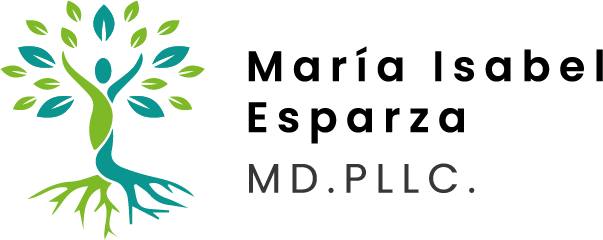When you work with me, you might notice that I talk about something called “whole-person care.” This is at the heart of my treatment philosophy, so I wanted to take the time to explain what it is and why it’s so important.
Whole-person care, or whole-person health, is an approach to health care that takes into consideration more than just the physical body. Whole-person care recognizes that you are not just the sum of your parts. You are complex and interconnected, and your well-being is determined not just by how well your body is working, but also by your mental health, environment, social circles, spiritual beliefs, and worldview.
This treatment philosophy is gaining traction in many parts of the world and is a response to the increased specialization in medicine that sees patients as separate body parts instead of an interconnected system. You might see a urologist for urinary incontinence and a cardiologist for high blood pressure, but what about the underlying stress and anxiety that is a driving factor behind both of these issues? Whole-person care considers all of those factors and promotes collaboration and communication between healthcare providers so that nothing slips through the cracks.
Another facet of whole-person care is integrating what are called Complementary Health Approaches (CHAs) into the traditional model of exams, testing, and medications. CHAs include things like mindfulness, dietary supplements, massage, meditation, reiki, etc. Once largely dismissed by the medical community, more and more doctors are recognizing the value of CHAs and incorporating them into their treatment plans. In 2020, 53.1% of physicians reported recommending at least one CHA to their patients.2
Research suggests that this more holistic approach is effective for preventing, treating, and reversing chronic disease. This includes several long-term studies such as the Framingham Heart Study, Nurses’ Health Study, and the Adventist Health Studies. These studies have looked at the connections between lifestyle, diet, genetics, health, and disease. These promising results have prompted individual doctors as well as entire healthcare institutions to adopt whole-person care, and on a personal level, I’ve seen how transformative it can be for my patients. These multicomponent interventions can be difficult to assess, however, and we still need more research to understand them better.1
The Five Dimensions of Whole-Person Care
The National Institute of Whole Health (NIWH) has identified the dimensions that affect a person’s overall health and well-being. They’re broken down as follows:
Physical-structural: This dimension refers to your physical body. This is what physicians normally assess when you have a health concern and what people typically think of when they think of “health.”
Emotional-mental: Mental and emotional health have a profound effect on how capable a person is of adopting and maintaining beneficial habits. This dimension encompasses your feelings, thoughts, beliefs, and values.
Nutritional-chemical: As the old adage goes, you are what you eat. High-quality, nourishing foods are what your body needs to function properly.
Environmental: Air, water, weather, noise, pollution, war, housing, all of these factors make a significant impact on your health.
Worldview: Your spirituality and beliefs about your purpose in life and what happens when you die also influence the decisions you make about your health.
Whole-Person Care in My Telehealth Clinic
In my clinic, I am committed to taking the time to get to know you as a person, to truly understand your goals, and to figure out what is holding you back from feeling good every day. One of the benefits of this new model is that it gives us both the freedom and the time to build a relationship based on trust and understanding.
When you work with me, I will ask questions and consider every aspect of your life to get to the bottom of what’s causing your health concerns. In my experience, we get the best health outcomes when the patient feels seen and heard and trusts their doctor enough to be open and honest about their lives, their habits, their fears, and their hopes for the future.
Your treatment will involve more than a prescription and empty advice to “eat healthy and exercise.” We’ll talk about how to change harmful habits and promote healthy ones, we’ll address major stressors in your life and find solutions together. If you do get a prescription, we’ll adjust the dose to meet your needs and be in constant communication about how it’s working for you, if you’re experiencing side effects, etc. We will talk a lot about food, and how you can heal your relationship with food and experience joy instead of guilt when you eat the things you love.
After working in the traditional system and seeing its limitations, I strongly believe that this whole-person care model can transform healthcare for both patients and providers.
If you’re interested in learning more, you can check out the links below or schedule a 30-minute intake interview to assess if my clinic is the right fit for you.
Sources:
- https://www.nccih.nih.gov/health/whole-person-health-what-you-need-to-know
- https://welkinhealth.com/whole-person-care
- https://bamboohealth.com/blog/what-is-whole-person-care/
- https://www.wholehealtheducation.com/a-whole-person-health-approach-to-health-and-healing/
- https://www.partnersbhm.org/whole-person-integrated-care-model/
- https://pubmed.ncbi.nlm.nih.gov/34209250/
- https://www.talkinghealthtech.com/glossary/whole-person-care

